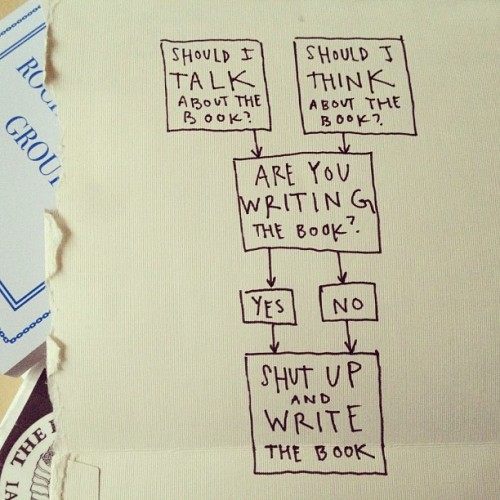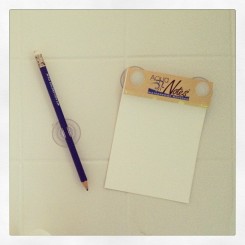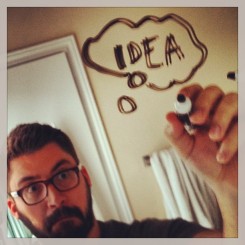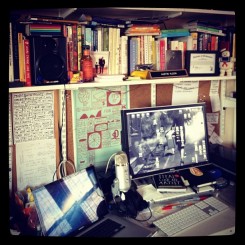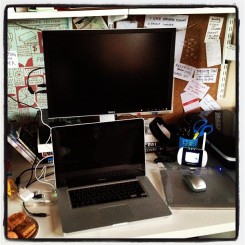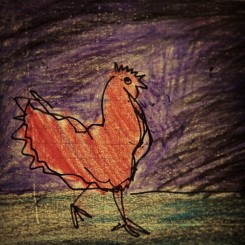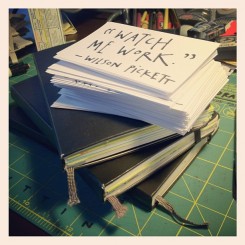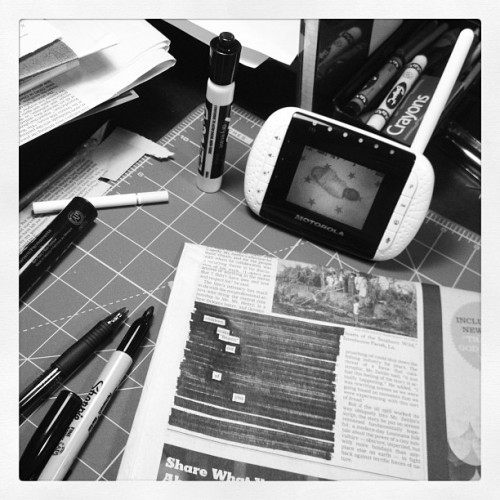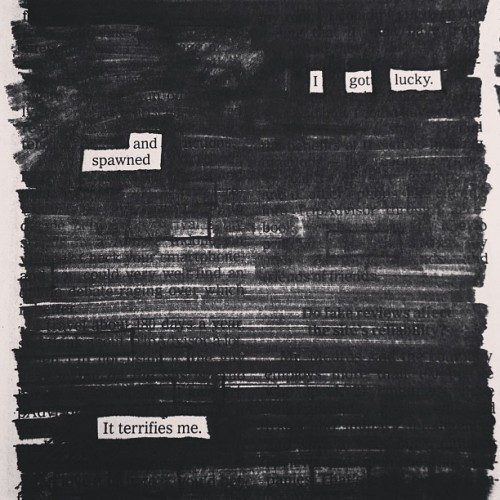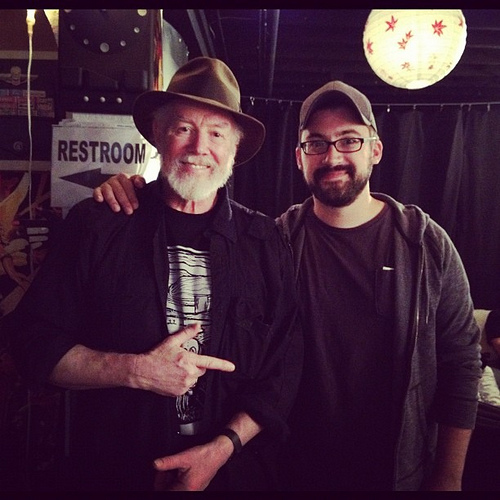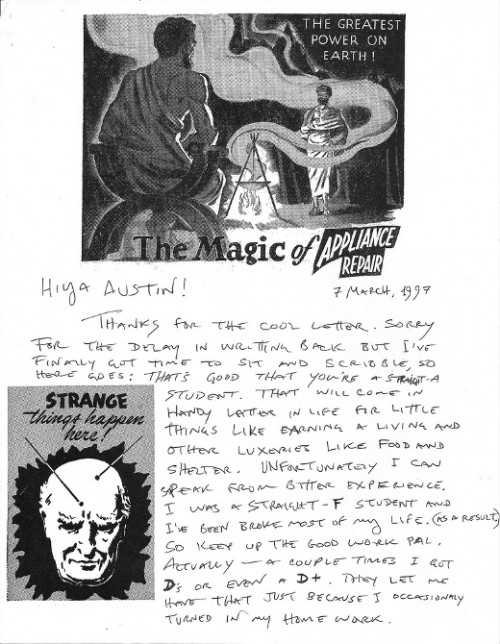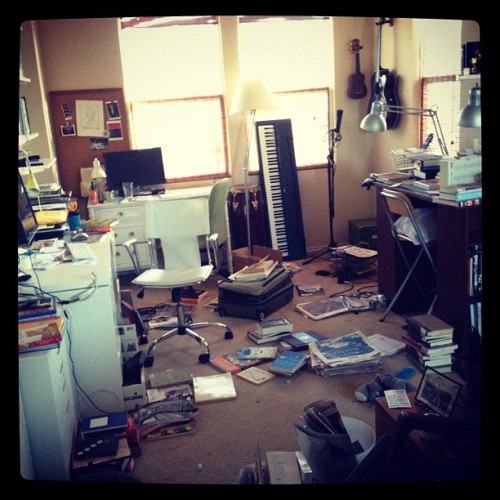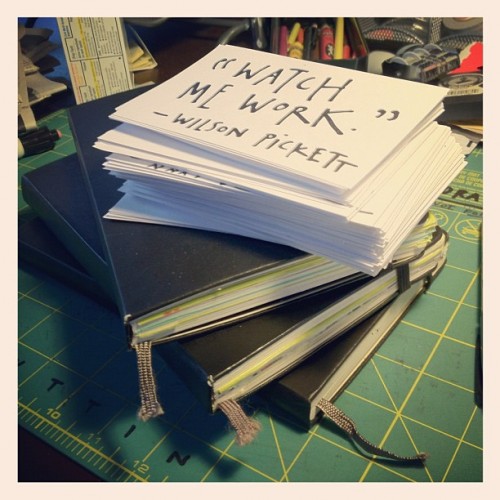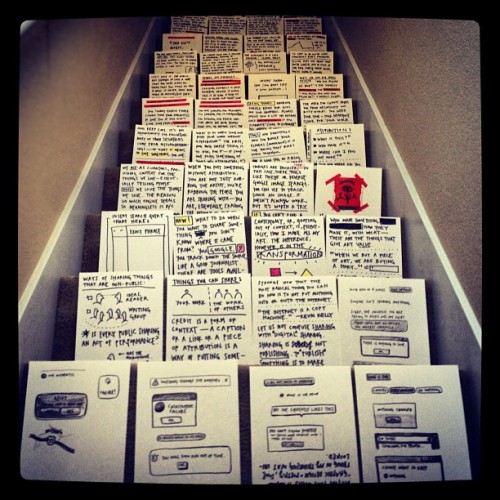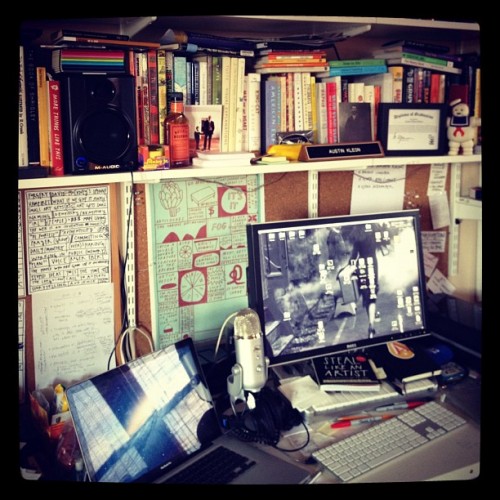
It was my pleasure to give the inaugural talk at the first Creative Mornings here in Austin last month. The monthly theme was “The Future,” so I tried to make the talk a sort of rallying cry to encourage future presenters and attendees to open up and share the process of their creative work, not just the products of that process. (That happens to also be the subject of my next book.)
If you don’t want to watch the video, I’ve pasted my notes and a few slides from the talk below. Enjoy.
* * *

It’s weird to try to give a talk about the future, because most of the time, talks like this are actually about THE PAST. A speaker is asked to get up on stage and talk because they’re someone who’s accomplished something, so they must have something to say, some sort of wisdom or experience or advice to impart to the audience.
But I happen to think that most advice is autobiographical — a lot of the time when people give you advice, they’re really just talking to themselves in the past.
Now, we usually think that the past is behind us, and the future is in front of us. This seems totally natural, right? But years ago I read about this tribe of indigenous people in South America called the Aymara, and they have this very different way of talking about the past and the future.
When they talk about the past, they point to the space in front of them. When they talk about the future, they point behind them. Strange, right?

Well, the reason they point ahead of them when talking about the past is because the past is known to them — the past has happened, therefore it’s in front of them, where they can see it.
The future, on the other hand, is unknown, it hasn’t happened yet, so it’s behind them, where they can’t see it.
This kind of blew my mind when I read about it. The past is right in front of us, but the future is behind us.
The future is hard to talk about because it hasn’t happened yet — it’s behind us, where we can’t see it.
